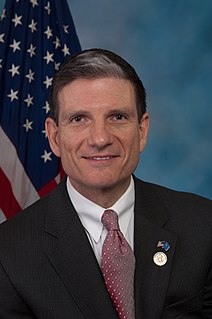A Quote by Barry Gardiner
Fracking locks the U.K. into an industry that is based on fossil fuels long after our country needs to have moved to renewables.
Quote Topics
Related Quotes
Rome wasn't built in a day, and we won't replace fossil fuels with clean energy based on the events of a single week, either. But the important thing to remember is that, once they happen, clean energy victories are irreversible. No one will tear down wind farms because they are nostalgic for fracking in our watersheds. And nobody will pull down their solar panels because they miss having mercury in their tuna or asthma inhalers for their kids. Because once we leave fossil fuels behind, we are never going back.
Most progressive in the Democratic Party doesn't cut it, you know. If we still can't have a health care system that provides health care as a human right, if we still cannot, you know, ban fracking and fossil fuels and move like our lives depend on it - you know, we say in the next 15 years we need to phase out fossil fuels.
And in the process, we have come up with fuels - algae-based fuels, isobutanol-based fuels and other fuels - that we think will power the planes in the future so that, you know, by 2020 I hope that our planes will be powered on fuels that are clean fuels and are not polluting the environment so that we'll have a green airline and an airline that actually has fuels that will be hopefully cheaper than the dirty fuels of the past. So [we're] doing good and also turning a profit at the same time.
The issue of climate change is one that we ignore at our own peril. There may still be disputes about exactly how much we're contributing to the warming of the earth's atmosphere and how much is naturally occurring, but what we can be scientifically certain of is that our continued use of fossil fuels is pushing us to a point of no return. And unless we free ourselves from a dependence on these fossil fuels and chart a new course on energy in this country, we are condemning future generations to global catastrophe.
The true cost of the pollution that is being dumped into the atmosphere and manifests itself in our sick children dealing with asthma or older folks dealing with heart and lung disease from the pollutions created by the burning of these fossil fuels, may not be reflected in the prices of fossil fuels, but that does not mean we aren't paying a high price for them.
If we want energy security, then we have to reduce our appetite for fossil fuels. There's no other way. Other issues may crowd the headlines, but this is our fundamental challenge. Big challenges require bold action and leadership. To get the United States off fossil fuels in this uneasy national climate of terrorism and conflict in the Persian Gulf, we must treat the issue with the urgence and persistance it deserves. The measure of our success will be the condition on which we leave the world for the next generation.































